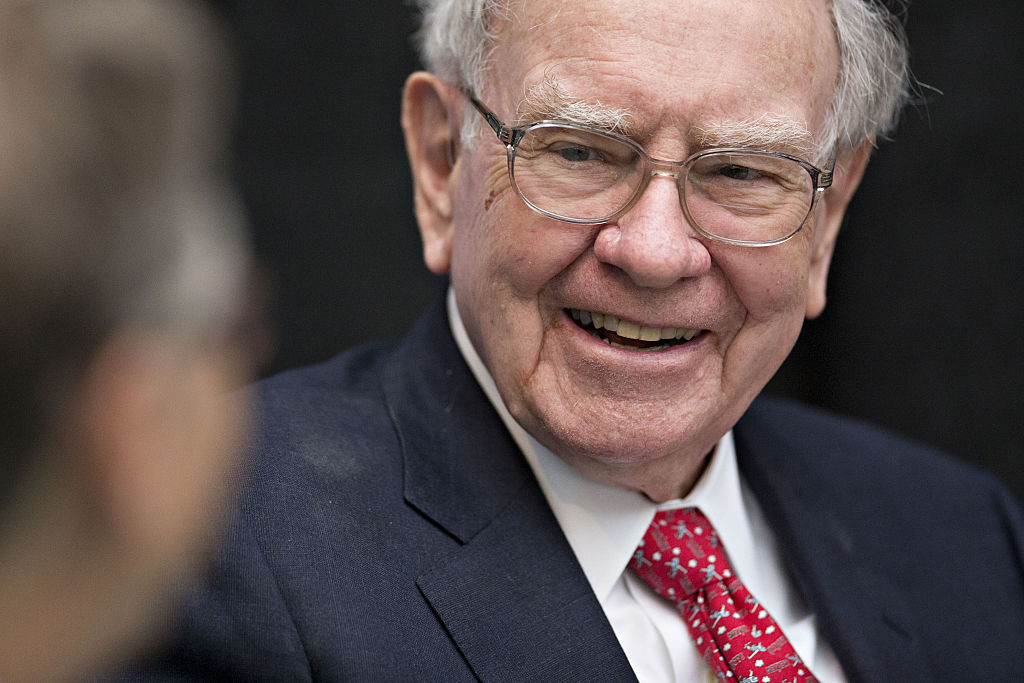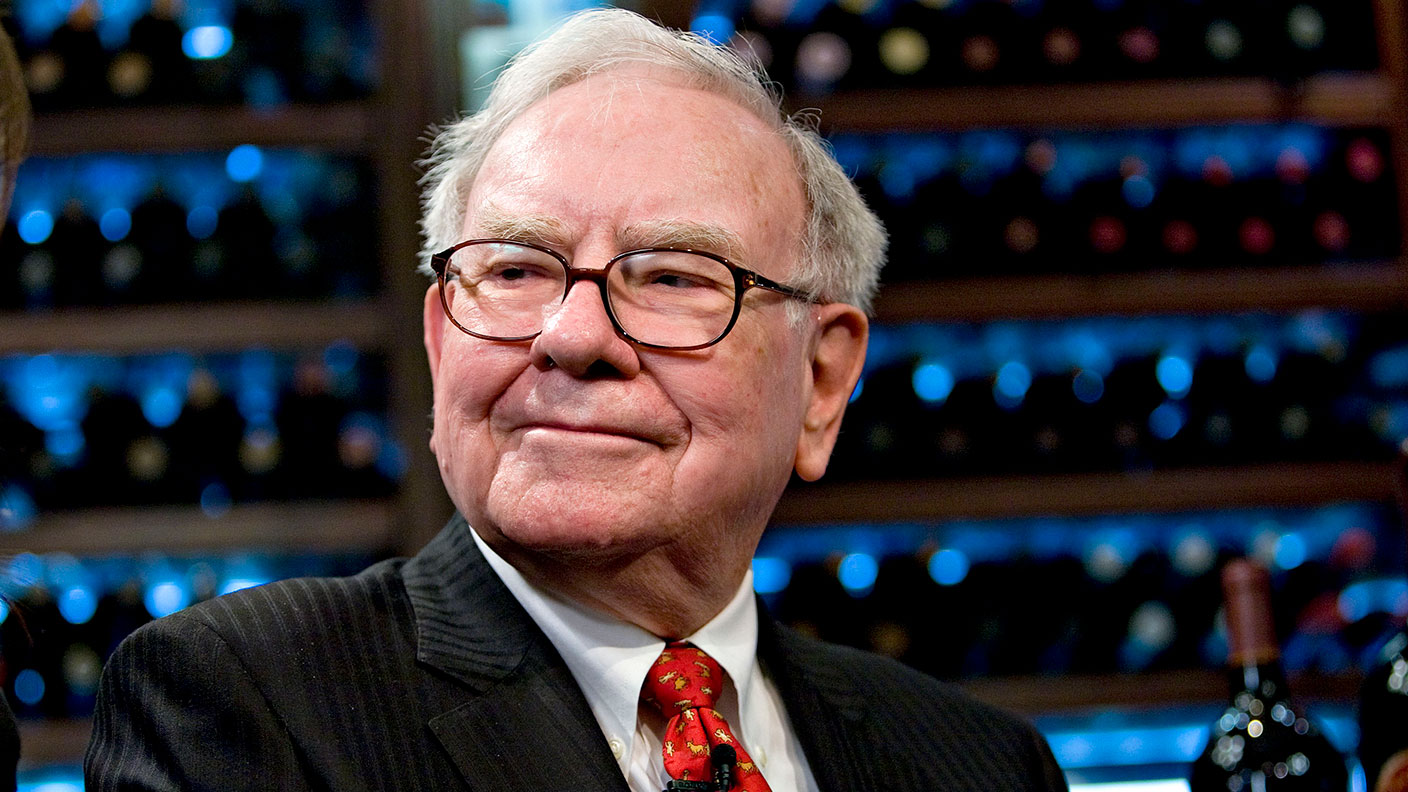How to beat Warren Buffett – and the fund and trusts that have managed it
Warren Buffett has achieved stellar returns for investors over a long and illustrious career. Can you rival his investment performance?


Get the latest financial news, insights and expert analysis from our award-winning MoneyWeek team, to help you understand what really matters when it comes to your finances.
You are now subscribed
Your newsletter sign-up was successful
Want to add more newsletters?

Twice daily
MoneyWeek
Get the latest financial news, insights and expert analysis from our award-winning MoneyWeek team, to help you understand what really matters when it comes to your finances.

Four times a week
Look After My Bills
Sign up to our free money-saving newsletter, filled with the latest news and expert advice to help you find the best tips and deals for managing your bills. Start saving today!
Warren Buffett is the Lionel Messi of the investment world. His investment performance has been so strong over the course of his career that people have taken to calling him the Sage of Omaha. If the world of investing has a celebrity, Buffett is it.
In 1965, he took control of a textile manufacturer called Berkshire Hathaway and turned it into an investment vehicle. Today, this fund holds positions in more than forty stocks including Apple, Bank of America and Coca-Cola. And through his successful stock picking and his valuation-focused investment style, Buffett has delivered eye-wateringly good performance for investors.
Over the full course of its history, Buffett’s fund has returned 4,384,748%, according to Berkshire Hathaway’s latest annual report. This means an initial $100 investment would now be worth over $4.3 million. “For some context the same $100 invested in the S&P 500 would now ‘only’ be worth $31,323,” adds Laith Khalaf, head of investment analysis at AJ Bell.
MoneyWeek
Subscribe to MoneyWeek today and get your first six magazine issues absolutely FREE

Sign up to Money Morning
Don't miss the latest investment and personal finances news, market analysis, plus money-saving tips with our free twice-daily newsletter
Don't miss the latest investment and personal finances news, market analysis, plus money-saving tips with our free twice-daily newsletter
However, while Buffett’s performance is exceptional, there are a number of top investment funds and trusts on the market that have managed to rival the Sage of Omaha’s performance in recent decades, according to analysis from AJ Bell. And while their track records might not be quite as long as that of Berkshire Hathaway, they still merit consideration.
We share a roundup of these high performing funds and trusts, before highlighting some of Buffett’s top investment tips.
Funds that have beaten Buffett
Few funds go back as far as 1965, so AJ Bell’s analysis focuses on the past two decades. However, Khalaf highlights that even recent performance has been impressive so far as Berkshire Hathaway is concerned.
He says: “Over the last twenty years, Berkshire Hathaway has posted a dollar return of 555%, which translates into an 855% return for UK investors thanks to a weakening in the pound. That compares to a return of 738% from the S&P 500, in pounds and pence.”
“That might not sound quite as jaw-dropping as compounded outperformance since 1965, but it still equates to beating the S&P 500 by 0.7% a year.”
“That’s not to be sniffed at given the tremendous rise in the US stock market and the fact that Berkshire Hathaway has largely eschewed the technology stocks that have been responsible for the meteoric rise of the S&P 500,” he adds.
The following funds and trusts have beaten this 855% return over the past two decades.
| Header Cell - Column 0 | % Total return | £1,000 invested |
|---|---|---|
| FSSA Indian Subcontinent All-Cap | 2,408 | £25,081 |
| HgCapital Trust Ord | 1,884 | £19,842 |
| AXA Framlington Global Technology Fund | 1,465 | £15,648 |
| Polar Capital Technology | 1,461 | £15,611 |
| Lindsell Train Investment Trust | 1,436 | £15,362 |
| Fidelity Global Technology | 1,419 | £15,187 |
| 3i Group Ord | 1,411 | £15,115 |
| Janus Henderson Global Tech Leaders | 1,387 | £14,868 |
| Allianz Technology Trust | 1,330 | £14,302 |
| Scottish Mortgage Ord | 1,315 | £14,148 |
| Berkshire Hathaway | 855 | £9,549 |
Source: AJ Bell using data from Refinitiv and Morningstar. NAV total return in GBP to 19 April 2024. NAV total return may be more or less than share price return for investment trusts.
How have these funds beaten Warren Buffett?
Half of the funds in the league table are tech-focused products – and tech companies have enjoyed an inexorable rise over the past two decades. Stocks like Nvidia have seen their share price grow by more than 200% over the past twelve months alone.
Meanwhile, Buffett’s view on tech stocks has been lukewarm. While his stance has evolved somewhat in recent years (he now owns a large holding in Apple), he has previously described them as complicated. And a key principle of his investment philosophy is investing in companies that you understand.
Other funds in the list have been boosted by strong market growth too, for example, Indian equities have soared during this period. “Others have prospered despite hunting in markets with less spectacular performance, such as Europe and China”, Khalaf adds.
How to invest like Warren Buffett
If you would prefer to learn from the Sage of Omaha’s wisdom rather than trying to beat him, these five tips could help:
1. Take a valuation-focused approach
Warren Buffett’s investment philosophy is based on identifying undervalued companies and buying them at a discount. He then looks to hold them over the long term, in the belief that their share price will increase over time.
“All there is to investing is picking good stocks at good times and staying with them as long as they remain good companies", he once said.
2. Be patient
On a related note, Buffett warns investors against taking a short-term view. He famously said, “Someone’s sitting in the shade today because someone planted a tree a long time ago”. The same is true with investing – it’s about time in the market, not timing the market.
“One of Warren Buffett’s most often quoted quips is that his favourite holding period is forever… [He] thinks you should be happy to sit on your portfolio even if the market closed down for ten years”, Khalaf adds. That’s assuming the company in question remains a good one, of course.
3. Use index trackers
Despite forging a successful career as an active stock picker, Buffett isn’t against using index funds. In fact, he really likes them and says that both large and small investors should use them.
In the 2016 Berkshire Hathaway report, he wrote: “When trillions of dollars are managed by Wall Streeters charging high fees, it will usually be the managers who reap outsized profits, not the clients.”
4. Reinvest your dividends
If you reinvest any dividend income you earn, then it will help you buy more shares. In turn, you will earn “returns on returns”. This is also known as compounding – and Albert Einstein called it the “eighth wonder of the world”. It is one of the most effective ways of growing your wealth.
“Buffett likes to receive dividends, even though Berkshire Hathaway doesn’t pay one”, Khalaf explains. “Part of the rationale is Buffett has plenty of opportunities to reinvest the dividends he receives within his portfolio”, he adds.
5. Avoid investments you don’t understand – and stay away from crypto
A key piece of advice from Buffett is that you should only invest in companies you understand. This makes sense when you think about it. Investing isn’t gambling – it involves making an informed decision after thoroughly researching a company’s current financial position and future prospects.
This is one of the reasons Buffett has stayed away from tech stocks in the past. He now has a large holding in Apple, but he has previously described the company as behaving more like a consumer goods company in terms of its economic characteristics.
Another area Buffett warns investors to steer clear of is cryptocurrencies, describing them as “rat poison squared”.
“Crypto is going through another boom, but it has few genuine economic uses, and its long-term adoption by consumers, businesses and investors as a medium of exchange or a store of value is highly speculative”, Khalaf adds.
This means investors should only invest in crypto assets like Bitcoin if they are willing to lose any money they put in.
Get the latest financial news, insights and expert analysis from our award-winning MoneyWeek team, to help you understand what really matters when it comes to your finances.
Katie has a background in investment writing and is interested in everything to do with personal finance, politics, and investing. She previously worked at MoneyWeek and Invesco.
-
 Should you buy an active ETF?
Should you buy an active ETF?ETFs are often mischaracterised as passive products, but they can be a convenient way to add active management to your portfolio
-
 Power up your pension before 5 April – easy ways to save before the tax year end
Power up your pension before 5 April – easy ways to save before the tax year endWith the end of the tax year looming, pension savers currently have a window to review and maximise what’s going into their retirement funds – we look at how
-
 The Stella Show is still on the road – can Stella Li keep it that way?
The Stella Show is still on the road – can Stella Li keep it that way?Stella Li is the globe-trotting ambassador for Chinese electric-car company BYD, which has grown into a world leader. Can she keep the motor running?
-
 Fractional shares: what are they and why HMRC is worried?
Fractional shares: what are they and why HMRC is worried?Investors who have flocked to investment apps offering fractional shares in an Isa could lose the tax-free status of their portfolios.
-
 8 ways to profit from Japan’s recovery
8 ways to profit from Japan’s recoveryCorporate reform, normalising monetary policy and cheap valuations make Japanese equities a top long-term bet, says Alex Rankine.
-
 What is Bernard Arnault's net worth?
What is Bernard Arnault's net worth?We look into Bernard Arnault's net worth – how did he make his billions?
-
 Power your portfolio with the profits of China’s electric-vehicle makers
Power your portfolio with the profits of China’s electric-vehicle makersOpinion A professional investor tells us where he’d put his money. This week: Ewan Markson-Brown of the CRUX Asia ex-Japan Fund highlights three favourites.
-
 Top investment ideas for 2023: silver, tech and drugs
Top investment ideas for 2023: silver, tech and drugsAdvice Our writers’ top investment ideas for 2023 include a cybersecurity stock, bitcoin and a psychedelic treatment for depression.
-
 Buy stocks with wide moats to protect your profits
Buy stocks with wide moats to protect your profitsTips Companies with wide "moats" – attributes that give them an enduring competitive advantage – tend to thrive over the long term. Dr Mike Tubbs explains how to identify them and how to invest in them.
-
 How Warren Buffett built his fortune
How Warren Buffett built his fortuneAnalysis Warren Buffett is considered by many to be the best investor of all time. We examine how much Buffett is worth and how he made his fortune.
